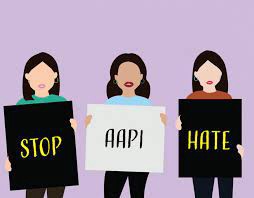It is sad that it takes the horror of spa killings in Atlanta to make us all pay attention to the problem of hate crimes against the Asian community. And tragic that a mass shooting in Boulder, Colorado, which followed a few days later, once again has us asking why it is so easy for troubled people to secure guns. As we try to understand why these events repeat themselves, it is important to remind ourselves that words matter and storytelling has consequences. More importantly, we need to assume personal responsibility for what we can do moving forward. For MPRM, that means commitment to supporting the work of diverse storytellers by creating opportunities to ensure their voices are heard.
Much has been written about how the demonization of COVID as the “China virus” and “Kung Flu” has led individuals to attack people of Asian descent, holding them responsible for the spread of the virus. Tragically the targets have mostly been elderly, who are not in a position to defend themselves. A classic example of bullying at its worst. Hate crimes against Asians are nothing new, as history depressingly shows us, from the 1871 Chinese Massacre in Los Angeles to the Japanese interment camps in World War II to the murder of Vincent Chin in 1982, whose assailants were given probation after entering pleas for manslaughter, to the more recent 9/11 inspired hatred of Muslims.
With the prevalence of mass shootings, news outlets have become more circumspect in their coverage to avoid the prospect of copycat killings or fulfilling a wish for fame, but docuseries about mass and serial killers and torn from the headlines dramas run counter to that effort.
For Asians, stereotypical portrayals in film and television contribute to the problem, with exaggerated accents, nerdiness and hypersexualization as obvious examples; however, “model minority” positioning has also had consequences. Crazy Rich Asians, justly celebrated for its box office success, with an Asian cast, writer and director, furthered the rich Asian, intelligent, hardworking and ambitious stereotype. And because they are seen as successful, one would argue that they are not discriminated against or “don’t have it that bad.” Yet at the same time, academic achievement has been used against Asians with lawsuits filed accusing university admissions programs for favoring Asians over white students, playing into their “otherness.” Despite the many who have found success, there is a huge income gap among Asians. With just as many at or below the poverty level, rich or poor, they still face racism and discrimination perpetuated by a long-standing conspiracy theory that Asians are somehow a threat to the Western world. We need to remember that the Asian and Pacific Islander community is very diverse; so sad that what brings them all together is fear.
How ironic that it took a pandemic to reduce the number of mass shootings, but now that lockdowns are ending they are once again on the rise. How sad it is that a hate crime against Asians took place so soon after the election of the first Black, South Asian American woman to Vice President of the United States, and the day after Minari received six Academy Award nominations, including the first Best Actor nomination, and that two Asian directors, Lee Isaac Chung and Chloe Zhaò, were nominated.
Each new incident brings justifiable protest and new questions raised by Black Lives Matter, Stop AAPI Hate and a myriad of gun control organizations that demand answers. According to the Los Angeles Times, QAnon is now blending anti-Chinese and and anti-Jewish tropes with fears of vaccines and a global plot to take over the world, forecasting predictions of more violence.
This is a story that deserves a much better ending, which is why MPRM’s commitment to diversity, equity and inclusion is unwavering and our support for organizations and storytellers on the frontlines is ongoing.
* * *
